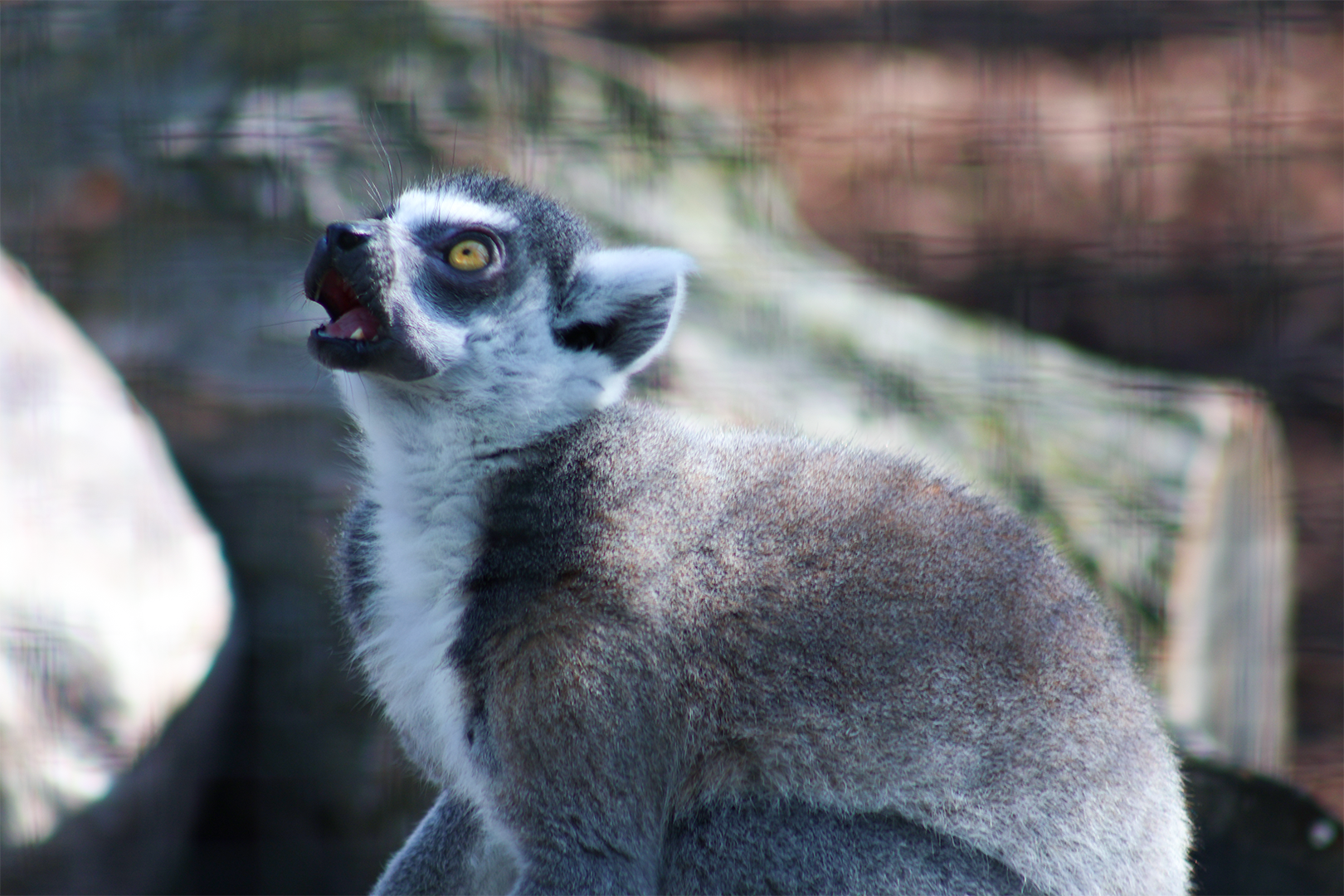I LIVE IN AFRICA
The ring-tailed lemur can only be found on the island of Madagascar. They tend to stay on the southern half of the island and like to gather in humid and deciduous forests near riverbanks.
I AM AN OMNIVORE
The ring-tailed lemur eats a variety of plants including leaves and flowers, however, they will also consume small invertebrates.
RING-TAILED LEMURS ARE SOCIAL
Ring-tailed lemurs are a very social primate species and will often gather in groups of anywhere from 3 to 25 individuals. They are very communicative with one another, ranging from facial expressions to vocalizations.
LOVE TO LEAP, LOVE TO SLEEP
When they are not leaping great distances from tree to tree, ring-tailed lemurs are spending the rest of their time on the ground. They are one of the few primates that likes to descend from the treetops and will often sit on the ground, facing the sun to soak up some of its rays.
HELPING THE RING-TAILED LEMUR IN THE WILD
The ring-tailed lemurs at the Zoo are enrolled in the Species Survival Plan (SSP). SSP is a program implemented by the Association of Zoos and Aquariums (AZA) to help ensure a genetically viable population exists.
I AM IMPORTANT TO MY ECOSYSTEM
Because a large portion of their diet consists of leaves and flowers, the ring-tailed lemur plays an important role in seed dispersal, creating a biodiverse environment.

